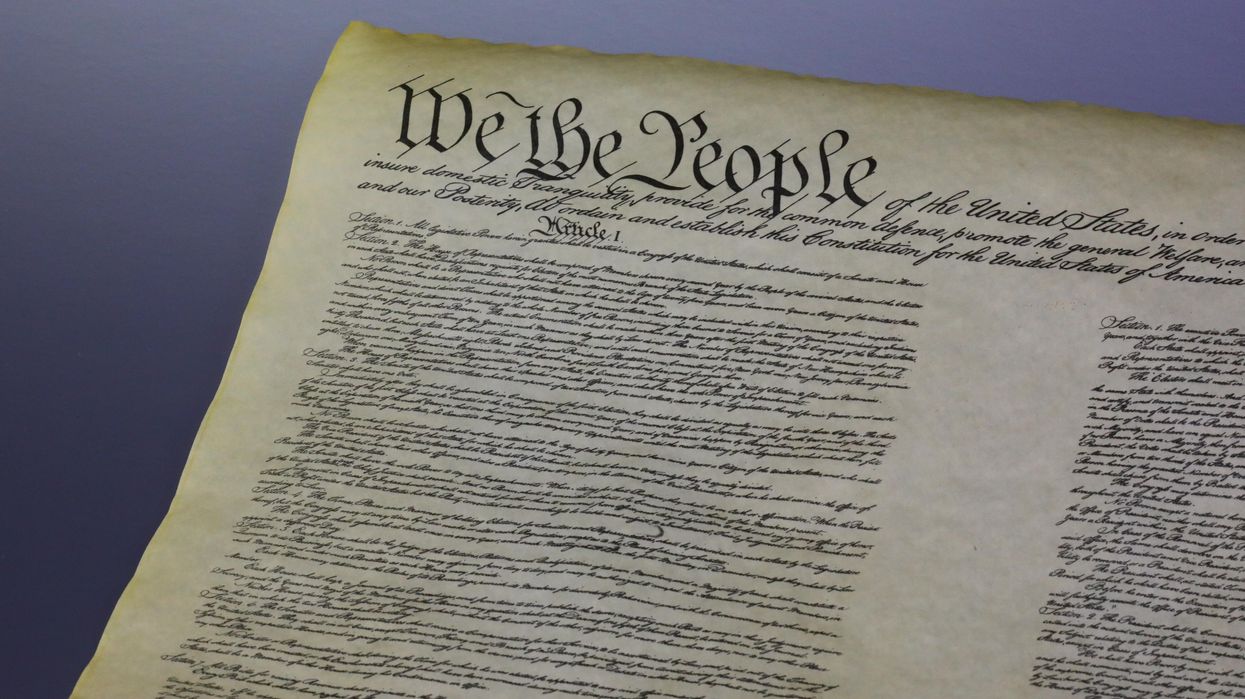Our Constitution contains an empty promise.
Article IV, Section 4 (known as the guarantee clause) imposes a duty on the federal government: Congress, the courts and the president “shall guarantee to every State in this Union a Republican Form of Government.” This promise is admittedly a difficult one to fulfill. Unclear language, though, cannot justify this status quo.
The Founders had a clear understanding that republican liberty must receive federal protection. In short, per Seattle University law professor Kip Hustace, the clause "obligates the federal government to redress domination where it arises.” Realization of this promise cannot wait. Massive corporations increasingly dominate the social and economic lives of Americans, in part due to the failure of state governments to curb the power of those companies.
Much of the Constitution places constraints on the federal government — clearly specifying what it may not do. The guarantee clause, however, places an affirmative responsibility on each branch to step in when states diverge from republican values and systems. Yet, like a coach who tells you to simply “do better,” the clause falls to provide specific instructions.
Scholars, judges and all those who have sworn to uphold the Constitution have long debated various aspects of the clause. Does it really place a duty on each branch of government? What qualifies as a republican form of government? How should the federal government intervene if a state does fall off the republican path? The difficulty of these questions and the ramifications of some answers to those questions have led the clause to become the equivalent of a dormant volcano — no one doubts it contains tremendous power, but few expect that power to ever be unleashed. Courts have generally avoided interpreting the clause. Congress has very rarely invoked the promise. And, presidents have only addressed it on a few occasions.
Those under oath to uphold the Constitution do not get to avoid its more complex and uncertain provisions. It would have been nice if the Founding Fathers had added a detailed footnote on their expectations for the clause. That omission is not an excuse for constitutional neglect. A more robust engagement with the meaning of the clause reveals some fundamental principles of republican governance that the Founders sought to protect.
The capacity to self govern is at the core of a republican form of governance. The founding generation had a very specific understanding of whether an individual had that capacity. They specified that only “free agents” could actively participate in governance. Others — those controlled by or dependent upon a private or public actor — lacked the independence to make neutral decisions for the good of the community.
Today, corporations such as Amazon, Apple, Google and Meta dominate the lives of millions of Americans. A few facts shared by former Rep. David Cicilline (D-R.I.) reveals the constellation of corporate control that confines republican liberty: Amazon captures 70 percent of all online marketplace sales; more than 100 million Americans use an iPhone and, by extension, rely on Apple's selection of apps, financial services and media; Google is responsible for 90 percent of searches online and, consequently, directs much of our online activity; and Meta operates the most popular social media platforms and shapes America’s information ecosystem.
Corporations of this size and scale did not exist at the founding. Madison, Washington and others had no reason to include a specific “watch out for multinational corporations” clause. They nevertheless had the wisdom to place an affirmative duty on the federal government to watch out for all threats to republican governance in the states. That duty continues today.
States, as the political authorities that incorporate companies like the Big Four, have the power and responsibility to make sure that corporations do not infringe on our capacity to self-govern. Yet, Americans today find it harder and harder to pursue their entrepreneurial ideas, to seek out information that has not been delivered to them via an algorithm, to live their daily lives without concern about their data being collected, aggregated and sold.
The cumulative control over our daily lives exercised by just a few large companies is very much a threat to republican governance. How best to respond to that threat is a difficult question. The first step, though, is acknowledging that the status quo is not only problematic, but unconstitutional.
Frazier is an assistant professor at the Crump College of Law at St. Thomas University and a Tarbell fellow.




















Trump & Hegseth gave Mark Kelly a huge 2028 gift